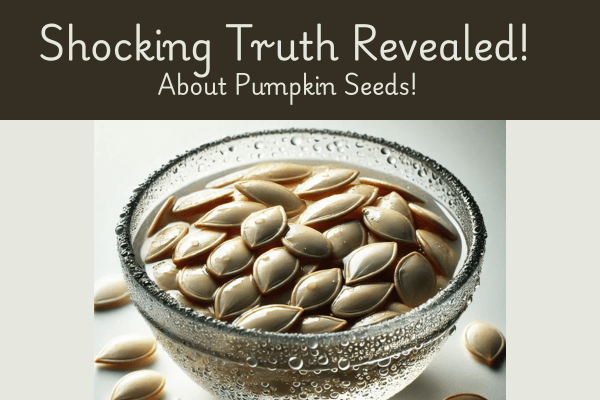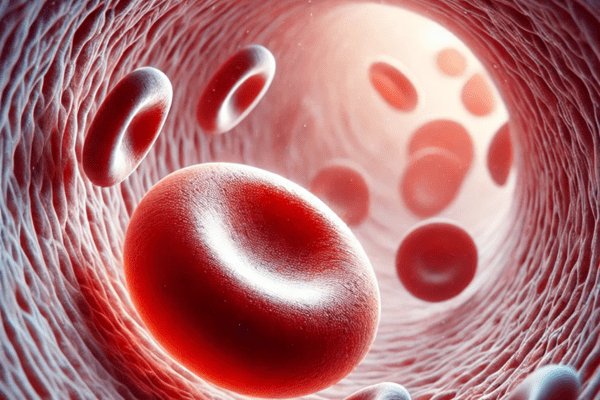Who Should Not Eat Pumpkin Seeds?:
Pumpkin seeds are packed with nutrients and offer many health benefits, but they are not suitable for everyone. While they support heart health, digestion, and immunity, some individuals may experience side effects.
People with seed allergies, low blood pressure, kidney problems, or digestive issues should be cautious. Excessive consumption can also impact weight management due to their high calorie content. Understanding potential risks helps in making informed dietary choices. Let’s explore who should avoid pumpkin seeds and why moderation is important for maintaining good health.
Table of Contents

6 Risks With The Pumpkin Seeds
1. People With Seed Allergies

People with seed allergies should avoid pumpkin seeds as they can trigger serious allergic reactions quickly. The proteins in these seeds may cause the immune system to overreact, leading to symptoms like itching, hives, and throat swelling. Some may experience breathing problems or chest tightness, and severe cases can result in life-threatening anaphylaxis. Cross-reactivity is common with sunflower and sesame seeds, making even small amounts dangerous. Reading ingredient labels and avoiding cross-contamination is essential for safety. Carrying antihistamines can help manage mild symptoms, but if any allergic reaction occurs, seeking medical help immediately is crucial.
2. People With Low Blood Pressure
Pumpkin seeds help lower blood pressure naturally due to their high magnesium and potassium content. While this is beneficial for people with high blood pressure, it can be risky for those with already low blood pressure. Consuming pumpkin seeds may cause dizziness, weakness, or lightheadedness, especially when standing up quickly. In some cases, it may even lead to fainting or extreme fatigue. People prone to low blood pressure should monitor their intake and avoid excessive consumption. If symptoms like dizziness or weakness occur after eating pumpkin seeds, it’s best to consult a doctor for guidance.
3. People With Digestive Issues
Pumpkin seeds are rich in fiber, which aids digestion but can cause discomfort for some people. Eating too many may lead to gas, bloating, or diarrhea, especially for those with sensitive stomachs. The high fiber content can be hard to digest, leading to stomach cramps or an upset stomach. People with irritable bowel syndrome (IBS) or other digestive issues may experience worsened symptoms. To avoid discomfort, it’s best to eat pumpkin seeds in moderation and drink plenty of water. Those with a history of digestive problems should consult a doctor before adding pumpkin seeds to their diet.
4. People Trying to Lose Weight
Pumpkin seeds are packed with nutrients but are also high in calories. While they contain healthy fats and protein, excessive consumption can contribute to weight gain. Eating too many may slow weight loss efforts, as the calories can quickly add up. Even though they are a nutritious snack, portion control is essential for those trying to lose weight. Instead of overeating, it’s best to consume them in moderation as part of a balanced diet. Choosing a small serving can help enjoy their benefits without affecting weight management goals.
5. People With Kidney Problems
Pumpkin seeds are rich in potassium, which plays a key role in muscle and nerve function. However, for people with kidney problems, excessive potassium can be harmful. Weak kidneys struggle to filter excess potassium from the blood, leading to a condition called hyperkalemia. This can cause symptoms like irregular heartbeat, muscle weakness, or even serious heart complications. Kidney patients should monitor their potassium intake carefully and avoid overconsumption of high-potassium foods. Before adding pumpkin seeds to their diet, they should consult a doctor to ensure it is safe for their condition.
6. People With Blood Thinning Issues

Pumpkin seeds are rich in potassium, which plays a key role in muscle and nerve function. However, for people with kidney problems, excessive potassium can be harmful. Weak kidneys struggle to filter excess potassium from the blood, leading to a condition called hyperkalemia. This can cause symptoms like irregular heartbeat, muscle weakness, or even serious heart complications. Kidney patients should monitor their potassium intake carefully and avoid overconsumption of high-potassium foods. Before adding pumpkin seeds to their diet, they should consult a doctor to ensure it is safe for their condition.
Final Words
Not everyone can safely consume pumpkin seeds, as they may cause health issues for certain individuals. People with allergies, digestive problems, low blood pressure, or kidney conditions should be especially cautious. The high fiber, potassium, and calorie content can affect sensitive individuals differently. It is important to consider personal health conditions before adding pumpkin seeds to the diet. Moderation is key to avoiding unwanted side effects and ensuring overall well-being. Eating too many can lead to bloating, diarrhea, or other digestive discomforts. Those on blood-thinning medications should also be cautious, as pumpkin seeds contain vitamin K. To stay safe, always consult a doctor for personalized advice based on specific health needs.
